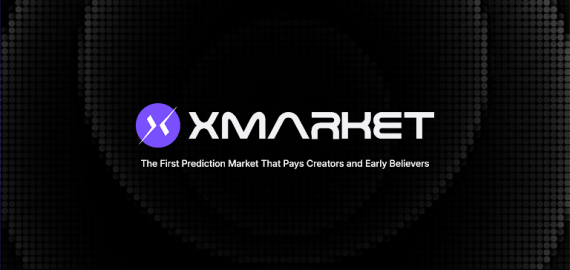Why Running an Archive Full Node is Crucial for Blockchain Developers


Introduction
Blockchain technology relies on nodes to ensure the security, integrity, and accessibility of the network. These nodes are essential for maintaining the blockchain and tools for developers building decentralized applications (dApps) and Web3 solutions. Nodes allow developers to deploy smart contracts, verify user balances, and perform many other functions essential for creating and maintaining blockchain-based applications.
There are a few types of nodes, each with different functionalities and purposes. While both full nodes and archive full nodes store comprehensive blockchain data, archive nodes go one step further by maintaining the entire blockchain history. This article discusses the importance of archive nodes, highlighting their benefits and essential role for blockchain developers
Advantages for Blockchain Developers Using Archive Full Nodes
Using archive nodes, you can access historical blockchain data like never before. For developers, this capability is crucial because they want to verify past transactions, the state of smart contracts, or the balance of users. When creating a financial application requiring accurate historical transaction data, an archive node is a must. This comprehensive data storage allows for quick and efficient retrieval of past states without the need to reprocess the entire blockchain, saving time and computational resources.
dApps perform better and are more reliable when they have access to historical data. For applications that track user activity over time or analyze historical trends, such as blockchain explorers, analytics platforms, and financial tools, having an archive node guarantees that data queries are fast and accurate. This improves the user experience by providing timely and reliable information, which is critical for applications that depend on real-time data analytics.
Setup of an Archive Full Node: Step-by-Step Guide
- Client Selection
When setting up an archive full node, the first step is to choose the appropriate client software.
A few popular options are:
- Geth (Go Ethereum): Known for its stability and extensive developer tools, Geth is the most widely used Ethereum client.
- Nethermind: Written in C# and .NET, it offers excellent performance and is favored for its compatibility with different platforms.
- Erigon: A fork of Geth, Erigon is optimized for speed and disk space efficiency, making it a good choice for running archive nodes with large data requirements.
- Hardware Preparation
To handle the processing and storage requirements of an archive node, robust hardware is needed. Here are the recommended specifications:
- CPU: A fast CPU with 4+ cores to handle the intensive processing tasks.
- RAM: Minimum of 32 GB, though 64 GB or more is preferable for optimal performance.
- Storage: SSDs with several terabytes of capacity, as archive nodes store vast amounts of historical data. Depending on the client, storage requirements can be substantial. For example, As of the time of writing, full archive nodes running Geth requires around 18 TB, while Erigon requires around 3 TB.
- Bandwidth: High-speed internet connection with unlimited data to manage continuous synchronization and data retrieval. A speed of at least 25 MB/s is recommended.
- Install and Configure the Client
After the hardware is ready, install and configure your chosen client by following these steps:
- Download the client software from the official repository.
- Follow the instructions provided for your operating system to install the software.
- Configure the client to run in archive mode. This typically involves setting specific flags or configuration options that enable the full history storage.
For example, in Geth, you can start an archive node with the following command:
| geth –syncmode “full” –gcmode “archive” |
- Sync the Node
Since the whole blockchain history needs to be downloaded and processed, synchronizing the node can be a lengthy process. Steps involved in this process include:
- Initial block download (IBD): Downloading all blocks from the Genesis block.
- State sync: Storing and processing all historical states.
It may take several days or weeks for the synchronization to complete, depending on the network and hardware. Make sure there is continuous power and internet connectivity during this time.
- Monitor and Maintain
Regular monitoring and maintenance are crucial to ensure the node’s performance and data accuracy. Implement the following practices:
- Monitor system resources: Use tools to track CPU, RAM, and storage usage.
- Update the client software: Regularly check for updates and apply them to benefit from performance improvements and security patches.
- Backup data: Periodically back up the node data to prevent loss due to hardware failure or other issues.
Allnodes: Access to Archive Nodes
Allnodes is a platform that provides a simple step-by-step setup process and an easy-to-use dashboard so that even those with limited technical expertise can use it. Using Allnodes, you can create and manage archive full nodes seamlessly and intuitively.
Allnodes has a reputation for high uptime and reliability. Allnodes maximizes data availability and consistency by maintaining operational nodes almost 24/7. For developers who need uninterrupted access to blockchain data for their applications, this reliability is especially valuable.
Their platform includes features like DDoS protection, secure data centers, and regular security audits to ensure that your node remains safe from external threats. With advanced security measures, Allnodes protects nodes and data.
Conclusion
Running an archive full node is crucial for blockchain developers who require comprehensive access to historical blockchain data. The benefits of full data access and improved dApp performance make it an essential tool for developing robust, data-intensive applications. While setting up and maintaining an archive node can be complex, platforms like Allnodes simplify the process, offering user-friendly interfaces, high reliability, and strong security measures.
For developers looking to leverage the full potential of blockchain technology, running an archive full node provides the foundation for building powerful and efficient decentralized applications. With Allnodes as a partner, developers can focus on innovation and development, leaving the complexities of node management to the experts.
Disclaimer
In line with the Trust Project guidelines, please note that the information provided on this page is not intended to be and should not be interpreted as legal, tax, investment, financial, or any other form of advice. It is important to only invest what you can afford to lose and to seek independent financial advice if you have any doubts. For further information, we suggest referring to the terms and conditions as well as the help and support pages provided by the issuer or advertiser. MetaversePost is committed to accurate, unbiased reporting, but market conditions are subject to change without notice.
About The Author
Gregory, a digital nomad hailing from Poland, is not only a financial analyst but also a valuable contributor to various online magazines. With a wealth of experience in the financial industry, his insights and expertise have earned him recognition in numerous publications. Utilising his spare time effectively, Gregory is currently dedicated to writing a book about cryptocurrency and blockchain.
More articles

Gregory, a digital nomad hailing from Poland, is not only a financial analyst but also a valuable contributor to various online magazines. With a wealth of experience in the financial industry, his insights and expertise have earned him recognition in numerous publications. Utilising his spare time effectively, Gregory is currently dedicated to writing a book about cryptocurrency and blockchain.


















































